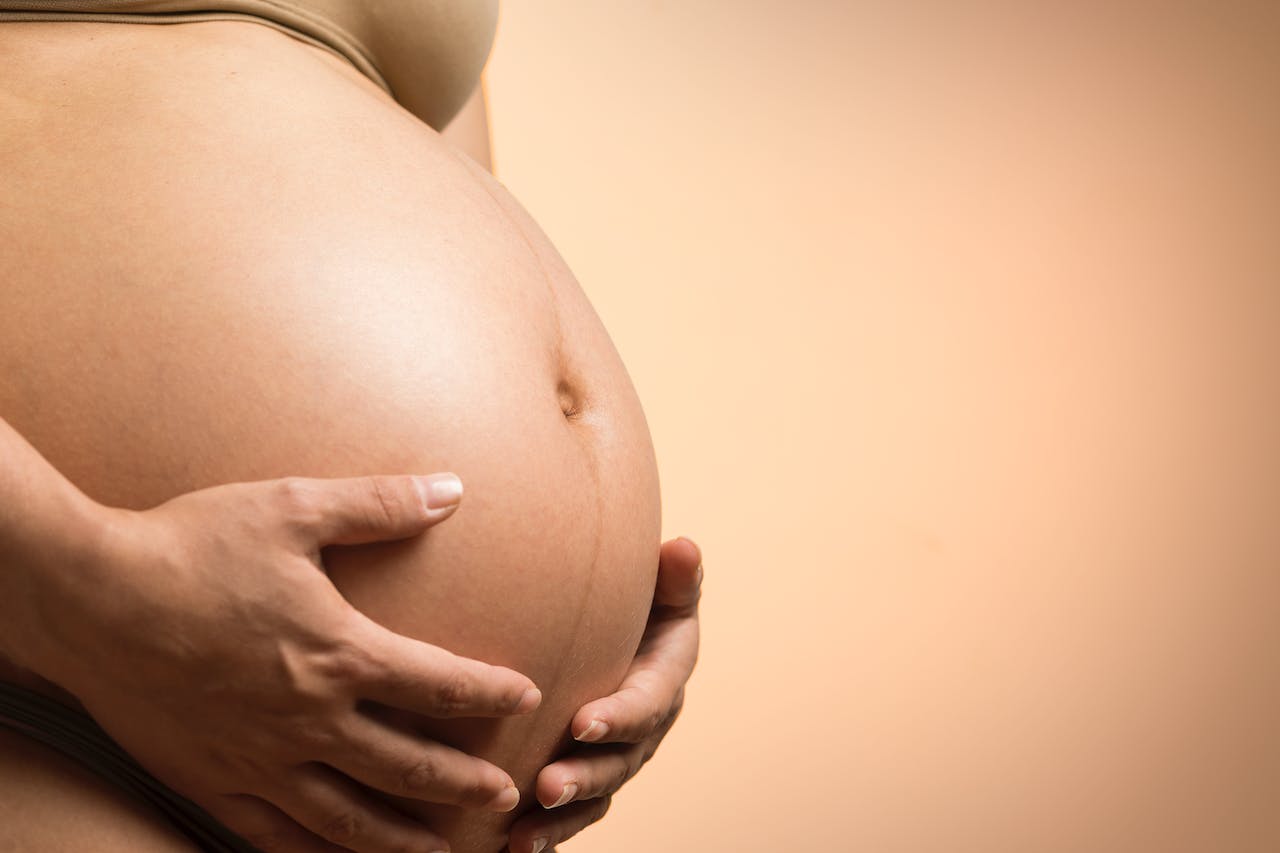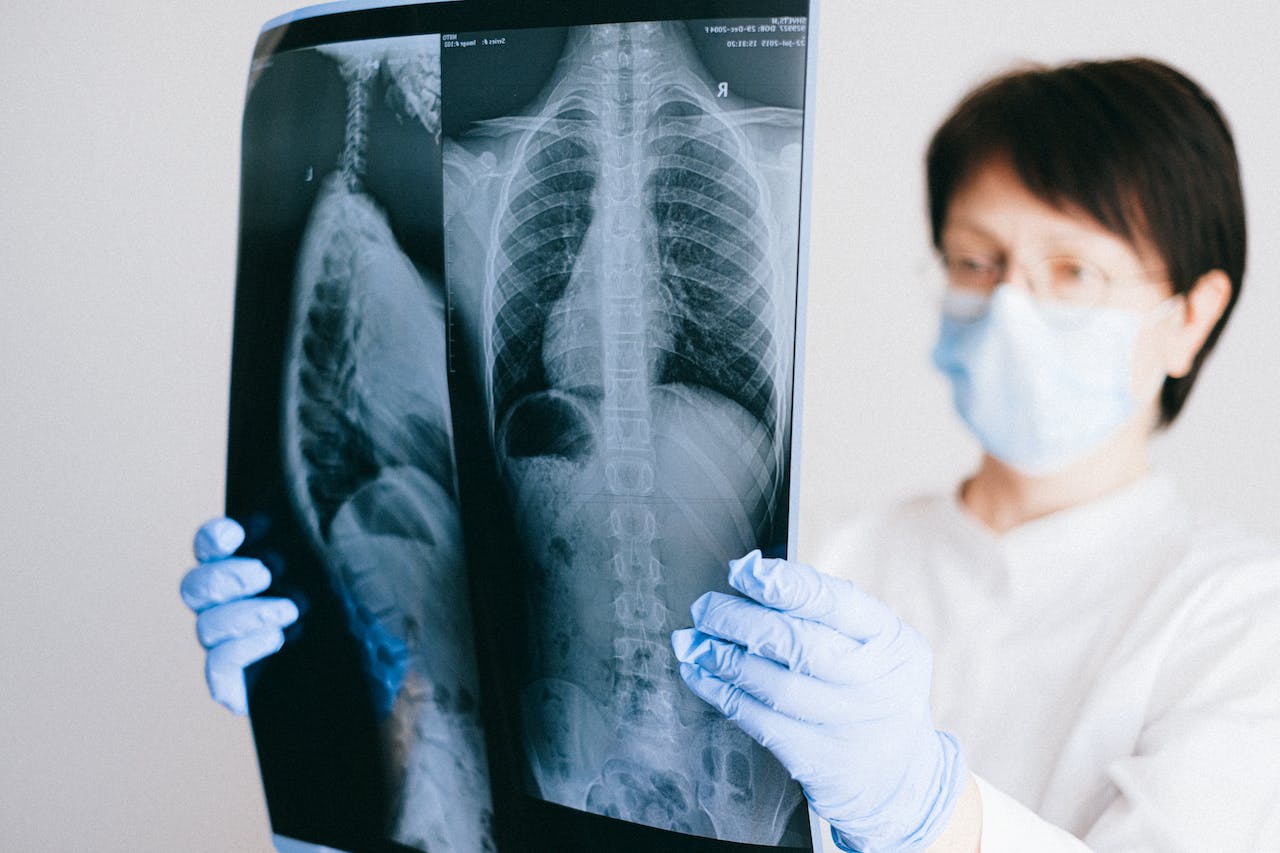Migraine is a neurological condition characterised by recurring headaches, often accompanied by other symptoms such as:
- Sensitivity to Light and Sound: Also known as photophobia and phonophobia. You may need to rest in a quiet, dark room during an attack.
- Nausea and Vomiting: Feeling sick and potentially vomiting are common symptoms of a migraine attack.
- Visual Disturbances: Known as ‘aura’, these can include seeing flashing lights, zigzag patterns, or blind spots.
- Tingling Sensations and Numbness: These may occur on one side of the body, particularly in the face, hands, and sometimes in the legs.
- Difficulty Speaking: Some people may experience temporary difficulty speaking clearly.
- Feeling Faint or Dizzy: This can occur during a migraine, and some people might actually faint.

Migraine in Peri-Menopause and Menopause: What’s the Association?
There are many predisposing factors which are associated with migraine. Menopause and peri-menopause are known risk factors for suffering from migraine. During these stages of life, fluctuating hormone levels can significantly impact the frequency and severity of migraines in women.
Menopause, which typically occurs around the age of 50 is characterised by a decrease in oestrogen and progesterone production. Oestrogen, in particular, is known to have a complex influence on the central nervous system and may modulate pain perception and regulation, thus playing a crucial role in the development and progression of migraines. Approximately 50-60% of women with migraines report changes in migraine frequency and severity during the menopausal transition. Some women may experience a reduction in migraines, while others may experience an increase or no significant change at all.
During peri-menopause, which refers to the years leading up to menopause, hormone levels fluctuate irregularly. This hormonal instability can contribute to the onset or worsening of migraines. The NHS suggests that hormonal changes may trigger migraines in susceptible individuals, with oestrogen withdrawal being a particularly common trigger. Additionally, the risk of migraines with aura, a type of migraine that involves visual disturbances, may increase during peri-menopause. It is essential for women to be aware of these changes and seek appropriate management strategies to alleviate symptoms and improve their quality of life.

Migraine Hormonal Treatment
Managing migraines during menopause and peri-menopause often involves a multifaceted approach that addresses both the underlying hormonal changes and the specific triggers and symptoms associated with migraines. It is not uncommon for women to have difficulty treating migraine. Menopause, also, can have other symptoms which require robust management strategies to improve. Hormone replacement therapy (HRT), which involves supplementing oestrogen and progesterone, may be considered for women experiencing severe migraine in peri-menopause and menopause.
According to the National Migraine Centre, HRT can be effective in managing migraines in women going through menopause, offering potential relief to many.
The theory behind why supplementing oestrogen might work is the modulating effect it normally has on pain perception. By the introduction of exogenous oestrogen, as in HRT, you could potentially alleviate migraines during menopause by stabilising hormone levels.
However, it’s important to note that the correlation between migraines and oestrogen is intricate, and the response to oestrogen supplementation may vary among individuals. Moreover, while promising, HRT is not a universally appropriate solution. Some women may observe an increase in migraine frequency and severity after initiating HRT. There are also other associated risks, including a heightened risk of certain types of cancer and cardiovascular diseases.
The potential of hormone therapy in managing menopausal and peri-menopausal migraines indeed warrants further investigation to clarify the optimal type and timing of hormonal interventions, alongside understanding the potential side effects and risks.
As with all treatments, it is crucial for patients to consult with healthcare providers before initiating hormone therapy for migraine. Menopause itself may be an independent indication for starting HRT, but even where it is not if patients are suffering from severe migraine and are menopausal or peri-menopausal it is worth considering.
Lifestyle Modifications to Reduce Headache in Menopause Symptoms
Non-hormonal management strategies are also crucial in the treatment of migraines in the peri-menopause and menopause. The following are recommended lifestyle modifications to prevent migraines:
- Maintain a Regular Sleep Pattern: Inconsistencies in sleep duration and quality can trigger migraines. Try to maintain a regular sleep schedule, ensuring you get enough rest each night.
- Stay Hydrated: Dehydration is a common trigger for migraines. Ensure adequate daily fluid intake, and increase hydration during hot weather or physical exertion.
- Regular Exercise: Physical activity can reduce the frequency and severity of migraines. Aim for 30 minutes of moderate-intensity exercise most days of the week.
- Healthy Diet: Maintaining a balanced diet can help prevent migraines. Avoiding known dietary triggers, such as caffeine, alcohol, and certain types of cheese, can also be beneficial.
- Stress Management: Chronic stress is a common trigger for migraines. Incorporating relaxation techniques like yoga, mindfulness, and meditation into your daily routine can help manage stress levels.
- Limit Screen Time: Extended periods in front of screens can contribute to migraines. Regular breaks, adjusting screen brightness, and using blue-light filters can help reduce this risk.
- Avoid Sensory Triggers: Bright lights, loud noises, and strong odours can trigger migraines. Aim to minimise exposure to these environmental factors when possible.
- Weight Management: Overweight and obesity have been associated with increased migraine frequency. A balanced diet and regular exercise can help maintain a healthy weight.
- Caffeine Moderation: Although small amounts of caffeine can help relieve acute migraine symptoms, excessive consumption can increase the frequency of migraines.
- Quit Smoking: Smoking can trigger migraines and make them more severe. Quitting smoking is beneficial for migraine prevention and overall health.
- Maintain a Regular Meal Schedule: Skipping meals or fasting can trigger migraines. Eat regular, balanced meals throughout the day.
Remember, these lifestyle changes may not completely eliminate migraines for everyone, but they can significantly reduce the frequency and severity of attacks for many people.

Pain Killers for Migraine in Peri-Menopause and Menopause
Over-the-counter pain relievers, such as nonsteroidal anti-inflammatory drugs (like ibuprofen) or paracetamol, may help alleviate mild to moderate migraine symptoms. However, for more severe or frequent migraines, prescription medications specifically designed for migraine management, such as triptans or preventive medications, may be necessary.
Pain Killers in Hormonal Migraine; Treatment Can Cause Harm
Medication Overuse Headache (MOH) is a significant concern for those suffering from migraines who frequently use painkillers. This goes for migraine in peri-menopause and menopause also. According to the Migraine Trust, if you take painkillers or triptans on more than 10 to 15 days per month for more than three months in a row, you may be at risk of developing MOH. This condition is characterised by headaches that occur on 15 or more days per month. These headaches persist or return as the medication wears off, leading to a cycle of increasing medication use. It’s crucial to adhere to medical advice when using painkillers for migraines, and if you find yourself requiring painkillers more frequently, consult with your healthcare provider. In some cases, a medication “detox” might be required to break the cycle of MOH, which should be conducted under medical supervision

Conclusion
In conclusion, the hormonal fluctuations experienced during menopause and peri-menopause can significantly impact migraines in women. While some women may find relief from migraines during this stage, others may experience increased frequency or severity of symptoms. Understanding the connection between migraines and hormonal changes is essential for managing migraines effectively. Whether through hormonal therapies like HRT, lifestyle modifications, or medication, there are various approaches available to help women navigate migraines peri-menopause and menopause.


